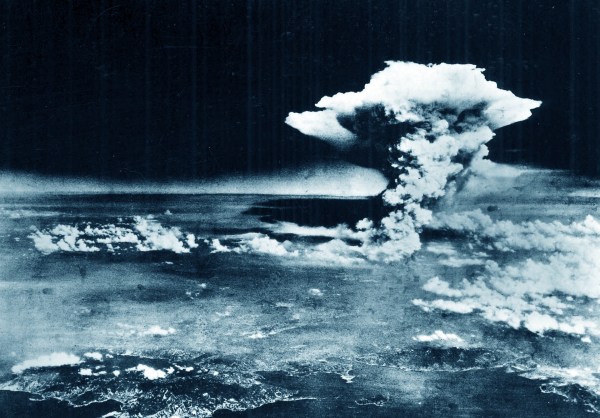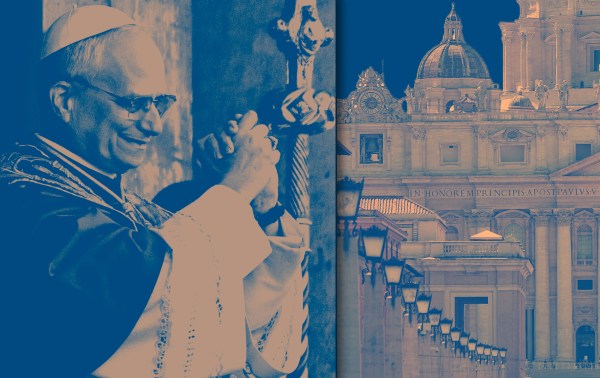I was recently riding a sweaty subway train in New York City and a man in a red shirt boarded. I didn’t pay attention to him until everyone did: Once the doors closed, he started yelling loudly—and joyfully—about Jesus, how Jesus is the way, the truth, and the life, and how his life had been changed by the ultimate love of God and his son.
I hear similar messages in church, and I sit up straight in the wooden pews and try my best to internalize the message. But on this train I was second-hand embarrassed—especially after he asked other people to testify and no one did—and at the next stop I changed train cars.
Why? The reason, I think, has to do with earnestness.
Scripture praises earnestness. In some translations of the Gospel of Luke, Jesus states: “Strive earnestly to enter through the narrow gate: for many, I say to you, shall seek to enter in, and shall not be able.” Later in the Garden of Gethsemane, before his arrest and crucifixion, Jesus is said to have prayed so earnestly that “his sweat was like drops of blood falling to the ground.” The word also shows up in Hebrews: “And we desire each one of you to show the same earnestness in realizing the full assurance of hope until the end, so that you may not be sluggish, but imitators of those who through faith and patience inherit the promises.” From all of this we get a sense of biblical earnestness: a directed striving toward God, with every ounce of one’s strength.
In contrast, it’s often been said that the past few decades have been an age of irony—that is, everything seems to be said with a tinge (or more) of unseriousness, making it impossible to fully commit to something. The popularity of such pronouncements comes and goes: In the wake of 9/11, writers proclaimed that irony was dead, that the flames and the planes and the smoke made smirks congeal into thin-pressed lips and hard-armed hugs. But look around: When everything is a meme to be laughed at through a snort of the nose, giving anything its proper due—and even calculating something’s proper due—seems more and more difficult.
Indeed, nowadays you are hard-pressed to express earnestness without some sort of caveat. A juvenile example is those sweatshirts declaring “Virginity Rocks!” that went viral when I was in college a few years ago. The trend appears to have begun with the YouTuber Danny Duncan, who began wearing such a sweatshirt as a joke and who told the New York Times: “I have sex, obviously, but I want people to do whatever they want to do and not be pressured into anything.”
More seriously, last year Christian writer Wendell Berry opined on a lack of unequivocal expression in an essay on war and the death of children. “Who in public life could quote without fear or embarrassment any saying of Jesus on the subject of peace?” he wrote. “Martin Luther King Jr. could do so, and did so. But who now?”
Note that Berry applies this to public life. It would be fine in most Christian circles to quote Jesus on peace; not doing so, in fact, would be quite odd indeed. But in public life I have noticed that I clam up—I feel odd mentioning my spiritual experiences to nonreligious friends, even though these experiences are a major shaping force in my life.
Why? Put simply, I don’t want to be embarrassed. It is important to me, probably for the worse, to be a Cool Young Person in New York City, and going around spouting off about the love of Jesus doesn’t make me appear cool. But I also wonder if, instead of simply being something that might fuel a one-off joke, irony is also like a miasma, settling down upon a culture like a blanket, even on those who might be inclined to resist. For even when a fellow Catholic talks to me, totally clear-eyed, about the Lord’s plans for us, I feel a twinge of discomfort. It could be because of my own moral failures, which are many. But I think that, in a culture where everything can be meme-ified, such seriousness can feel especially wounding.
There is a near-homophone of “earnest” that is relevant here: honest. That is, most simply, telling the truth. But more completely, in a person: fully showing yourself, and your desires, and your faults, as they are. Add enthusiasm and you get earnestness.
I recently was at a dinner party at an agnostic friend’s house, and we got to talking about a wedding I was about to attend in Detroit. I love the couple in question dearly, and I told the assembled party how the now-husband would escort his now-wife home from Morningside Heights to her place in Brooklyn—which my map tells me is about a 50-minute subway ride—and then go back to his place in Morningside Heights. All told, maybe two hours. My audience—men and women—was dumbfounded: That’s crazy, someone said. Too much.
Crazy, or earnest? The now-husband had decided that he liked this woman, and that was that: He would show her his best.
I think perhaps one reason irony—not honesty—is king in our culture today is that true honesty requires one to know oneself. To know one’s own desires and one’s own faults. The now-husband knew he wanted to pursue this woman who is now his wife, so he did. But it seems that for many people, knowing a desire and acting on it are difficult. Take the rise in people with ADHD, for example, or the recently documented rise in neuroticism. Perhaps the crumbling of our attention spans makes it difficult to reflect on our own honest desires in the first place.
Honesty does not undo other sins. Consider the various fascists coming out of the woodwork who no longer claim to be anything other than a fascist: The honesty of the philosophical darling of the far-right saying the n-word without community scorn doesn’t offset the wrongness of his action. But most people are not fascists: Most people, I believe, want to live a thriving, purpose-filled life in harmony with others. And most people, I believe, might find some version of that elusive happiness if they would discern that purpose and pursue it. But that seems to require some earnestness.
How might we reclaim that earnestness?
I should note that, despite my embarrassment on the subway train, I was significantly less ashamed than I would have been at, say, age 18, when I was pretty much a Catholic in Name Only. Since then, I’ve spent much more time in Catholic circles, so now if someone speaks about God openly, I am mostly if not wholly pleased by this.
The lesson here is active osmosis: I think I have become more comfortable around honesty because I have become more used to it. And I have become more used to it because I have actively put myself in situations where I will, indeed, encounter someone who will unironically say they felt God’s presence on the Q train last night. You might also experience this on a smaller scale: I have recently been praying the Litany of Humility, which contains lines like “That others may be praised and I go unnoticed / Jesus, grant me the grace to desire it.” This is difficult to say on the first or even 20th read. But it gets easier.
One might also draw lessons from religious figures. Last year, the theologian Erik Varden wrote well of Cardinal Jean Daniélou, the French Jesuit who ministered to prostitutes in the mid-20th century: “He did not, by being a friend to prostitutes, relativize Catholic teaching: he wrote strongly in defense of chastity. But he was not shy to visit and assist those who, to reach this ideal, had a long way to go. He was just acting like his Master.” Indeed, he was not shy. And neither was Christ—public preacher, bread-breaker, and life-giver that he is.
Varden did not write only about Daniélou; that bit was part of a fuller meditation on chastity, in which he also wrote: “Only what I love will change me beautifully.” You cannot really love, I think, without being honest. Love requires a willing, enthusiastic force behind it, a fullness that cannot form if the germ of the feeling is cocooned in layers of irony. Perhaps that’s why a child’s sense of love of the small things of the world, of this teddy bear or this doll, is so heartwarming to us: They do not care if it is cool, or if anyone is watching. They are simply honest in their love.
It may not surprise you to learn that a quirk of the now-husband I described earlier is that he absolutely refuses to lie—no white lies, nor fibs, none of it. This has become a bit of a joke in our circles, and in fact it made his engagement to his now-wife a bit of a chore. (It is difficult to get your future fiancée to the dock in Brooklyn in a specific outfit without lying to her about the purpose of the trip, or else ruining the surprise entirely.)
But there’s something wounding about it, too. When the now-husband was waiting at the altar, he went around to the assembled statues of the saints and prayed, and I know he meant those prayers. When his bride approached him and he cried, I know those tears were real. When he and his wife said their vows, I know they meant every word, as much as any humans possibly could. And I cried harder than I have in years.







Please note that we at The Dispatch hold ourselves, our work, and our commenters to a higher standard than other places on the internet. We welcome comments that foster genuine debate or discussion—including comments critical of us or our work—but responses that include ad hominem attacks on fellow Dispatch members or are intended to stoke fear and anger may be moderated.
With your membership, you only have the ability to comment on The Morning Dispatch articles. Consider upgrading to join the conversation everywhere.